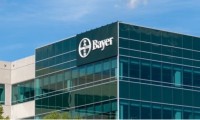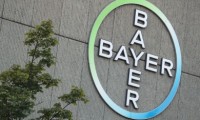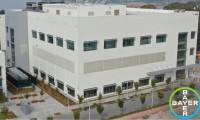-
Bayer Eyes Break-Up, Management Cuts on Disappointing Q3 Results
- Source: drugdu
- 123
- November 10, 2023
-
FDA posts updated safety data on Bayer’s Essure, notes progress on improving study
- Source: drugdu
- 115
- November 2, 2023
-
Bayer christens $250M cell therapy ‘launch facility’ in Berkeley
- Source: drugdu
- 142
- October 12, 2023
-
Bayer bets big on Kerendia’s potential to treat heart failure
- Source: drugdu
- 107
- September 5, 2023
-
Bayer and BlueRock announce positive results from Parkinson’s cell therapy trial
- Source: drugdu
- 101
- September 1, 2023
-
Bayer pledges $500K in drugs and cash relief to Maui following devastating wildfires
- Source: drugdu
- 188
- August 19, 2023
-
Bayer and BlueRock announce positive early-stage results for Parkinson’s cell therapy
- Source: drugdu
- 110
- July 1, 2023
-
Bayer’s BlueRock Reports Positive Early Data for Parkinson’s Stem Cell Therapy
- Source: drugdu
- 116
- June 30, 2023
-
Bayer needs ‘midsize acquisition’ to reach $10B oncology sales goal, exec says
- Source: drugdu
- 116
- June 15, 2023
-
Bayer’s blockbuster hopeful Nubeqa, AstraZeneca’s Forxiga pick up nods from England’s NICE
- Source: drugdu
- 113
- May 24, 2023
your submission has already been received.
OK
Subscribe
Please enter a valid Email address!
Submit
The most relevant industry news & insight will be sent to you every two weeks.













